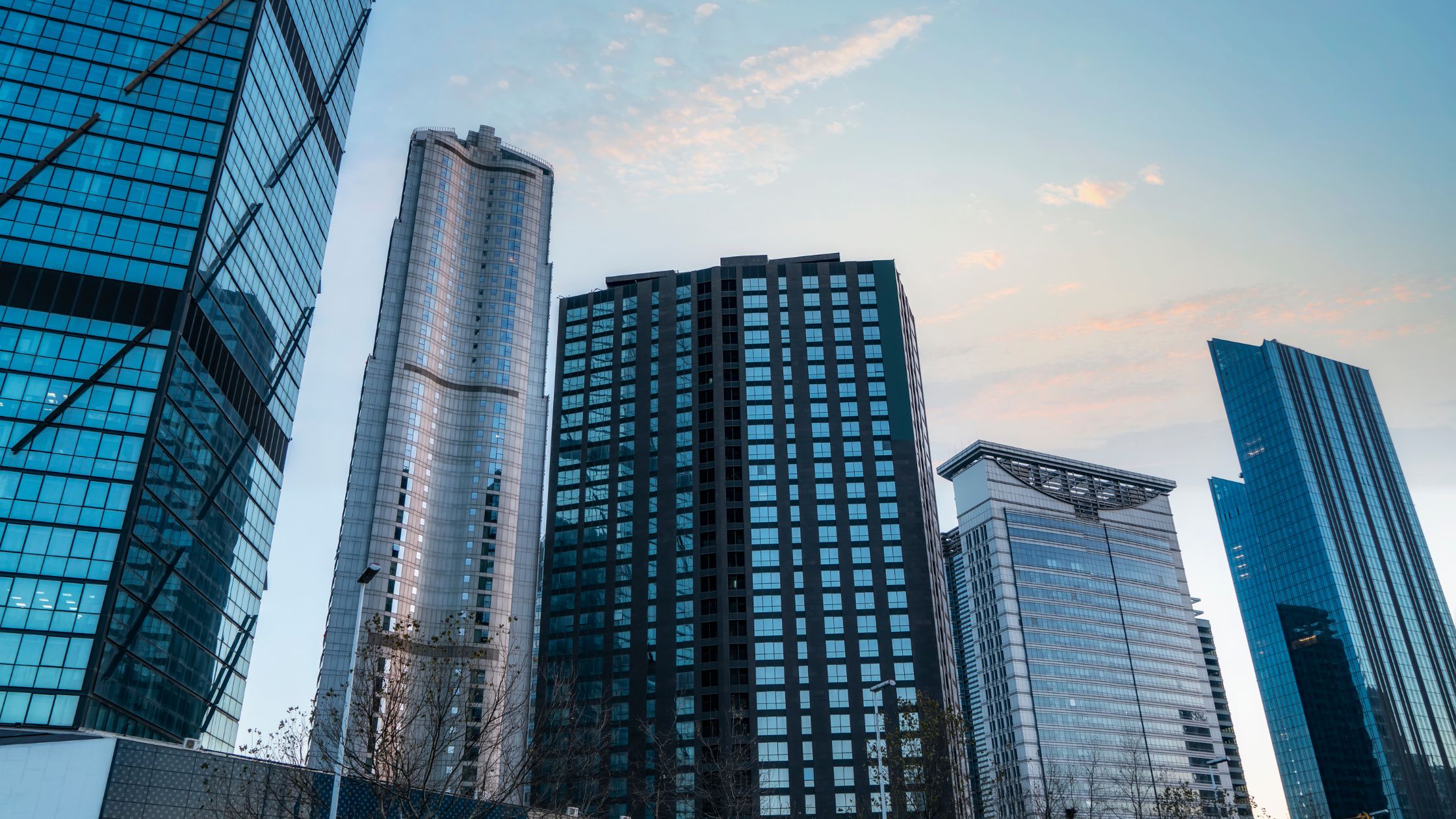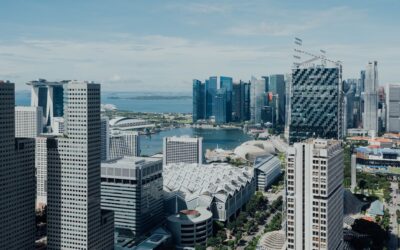Thanks to its strategic location and thriving economy, Florida is a prime target for commercial real estate investors and developers. The potential for lucrative returns is undeniable, especially in cities like Miami, Jacksonville, Tampa, Orlando, and Fort Lauderdale.
If you’re planning to capitalize on this opportunity, you need to partner with leading commercial real estate lenders in Florida to secure financing and maximize your investment.
But is Florida truly the right place for your next CRE venture? In this blog, we’ll take a closer look at how the state’s economic landscape is affecting commercial real estate loans and how you can benefit as an investor or developer.
The overall state of commercial real estate lending in Florida
Access to capital remains strong in the Sunshine State. South Florida, for example, has seen considerable new developments and high-profile transactions, indicating sustained interest in commercial real estate.
Miami, in particular, continues to attract investments with several large-scale projects, including five new high-rise towers planned for Miami Worldcenter(including an office building).
Analysts also expect legislation like the Live Local Act — which aims to address housing affordability and boost local economies — to indirectly foster CRE activity in metropolitan areas.
This act provides incentives for new developments and could potentially ease some financing challenges.
However, because of rising interest rates and tighter credit conditions, many traditional CRE lenders (especially banks) have taken a more cautious approach not just in Florida but in the US overall. They have understandably become increasingly selective, focusing more on borrower creditworthiness as much as project viability.
If you need access to funding fast andand/or need to meet the stringent criteria set by traditional financing sources, you can always turn to private lenders. Here are some of the alternative CRE loan products that they offer:
Commercial bridge funding
Commercial Real Estate Bridge loan is a quick and highly flexible financing solution for CRE investors facing time constraints or limited access to traditional lending.
If you need funds immediately but can’t get permanent financing immediately, a bridge loan can bridge the gap between your short-term needs and long-term plans.
Use it correctly, and it can help you maintain stability in your cash flow without exposing your project to undue financial risk.
Bridge loans are suitable for value-add, rehabilitation, or repositioning opportunities. Moreover, they help investors fund special-purpose properties and vacant buildings. Top commercial real estate lenders in Florida can help you secure the loan within 14 days while ensuring the best terms and rates.
Hard money loan
Do you have a lucrative CRE project that doesn’t quite meet conventional bank standards?
The commercial real estate hard money lenders in Florida can quickly give you the funding you need, often within 24 to 48 hours. Hard money financing is typically asset-based, meaning your credit score is less of a factor.
Stated income loan
Many CRE investors don’t qualify for traditional loans because they cannot provide the supporting documentation required. If you find yourself in this situation, work with commercial real estate lenders in Florida who offer stated income loans instead.
Commercial state income lenders‘ property loans are usually easier to secure than traditional financing because lenders don’t need to see your W-2s or tax returns.
They’re also flexible so that you can pursue a broader range of commercial projects, including offices, residential, retail, multifamily, industrial, and self-storage properties. Stated income loans can also be used for debt consolidation or refinancing.
Commercial real estate development trends in Florida’s major cities
1. Miami
Miami’s global business hub status and strategic location as a gateway between North and South America attract investors worldwide. This is perhaps why the city’s CRE market is doing substantially better than the rest of the US.
Several major companies have relocated to the city since the pandemic, so office vacancy rates in Miami-Dade County are notably lower than the national average, with prime office space in high demand.
Office rents are expected to increase in the coming year as a result. Miami’s international solid appeal and position as a regional hub should sustain demand for luxury hotels. This is an opportunity for hard money lenders in Miami.
2. Orlando
Tourism may have been Orlando’s lifeblood for decades, but commercial real estate helps the city thrive. Established companies and startups are attracted to the city’s technology hubs and opportunities for innovation.
Orlando’s economic landscape is well diversified, with sectors such as tourism, healthcare, information technology, aviation, and aerospace remaining strong.
The tourism industry creates unique CRE opportunities, too — after all, tourists require accommodations, entertainment, dining, and shopping options.
3. Tampa
Several large-scale projects centered on accessible development are reshaping Tampa’s landscape.
For instance, the Westshore Marina District and Midtown Tampa integrate residential, commercial, and leisure spaces to promote community interaction while lessening the residents’ reliance on driving.
Community-oriented projects like the Heights and Water Street Tampa — which incorporate green spaces and promote walkability — also create vibrant mixed-use spaces that offer plenty of opportunities for CRE investors.
4. Fort Lauderdale and Jacksonville
Both cities benefit from increasing connectivity and strategic locations, which are crucial for businesses looking to expand in the Florida market.
Fort Lauderdale is an excellent base for companies that want access to a large market along the state’s southeastern coast. Meanwhile, Jacksonville’s industrial rent growth outpaces many other regions, as the area is quickly becoming a logistics and distribution hub.
What you need to know about commercial real estate taxes in Florida?
Florida’s good tax environment attracts many investors. However, to maximize returns on commercial real estate investments, it’s important to manage and understand all tax implications.
Getting professional advice and meticulous planning can help you navigate the landscape of incentives, property taxes, and other relevant taxes for commercial developments.
Moreover, it can help you see how taxes can impact your real estate investment strategy.
What does the future hold for commercial real estate lending in Florida?
Florida’s commercial real estate market continues to be one of the best-performing in the US. Top commercial real estate lenders in several cities made more property refinances possible.
Both local and international investors are contributing to the market and positively impacting the financial health of Florida’s CRE landscape.
The following CRE developments across various sectors prove that the local CRE market remains strong and that there are plenty of opportunities for investors:
- The city commission is considering a proposal for a major project at North Miami’s Claude Pepper Park. The project would construct 2,190 apartments across eight towers.
- JPMorgan is increasing its presence in South Florida. The company is doubling its office space in Miami and plans new expansions into West Palm Beach.
- Florida Atlantic University plans to construct a 670-bed housing facility in Boca Raton, designed by HKS Architects, with a funding of $117.75 million.
- The Related Group is developing a new district in downtown Tampa that will include a Riverwalk underpass and other amenities.
- Publix Super Markets has acquired the Ramblewood Square Shopping Center in Coral Springs for $58.5 million.
- Seagis Property Group has secured $122 million in financing to acquire industrial properties across New Jersey, New York, and Florida.
- In an $11.5 million industrial real estate deal in Tampa, Boutique National represented iGas, with CBRE representing Home Depot.
- Oak Row Equities has obtained a $181 million loan for a mixed-use project in Miami’s Edgewater neighborhood. The project will include office, residential, and retail spaces.
- Hines has finalized a $220 million project for an office building in Fort Lauderdale. This is the first such development in the area since 2021.
- The Orlando Magic is moving forward with a $500 million sports and entertainment district development adjacent to their stadium.
- Berkadia has arranged $172 million in construction financing for ONE Park Tower by Turnberry, a multifamily project in North Miami.
- Oak Row Equities confirms another $181 million construction loan for a 41-story mixed-use project in Miami’s Edgewater.
- Long point has completed a $262 million purchase of a 25-building industrial real estate portfolio in South Florida, focusing on properties in Miami and Fort Lauderdale.
- Partnering with one of the top commercial real estate lenders in Florida is the first step towards realizing your project in one of the Sunshine State’s thriving CRE hubs. Whether it’s a completely new project, an acquisition, upgrade, or repositioning, they can help you access funding to help you achieve your objectives.
Get support from top commercial real estate lenders.
Private Capital Investors, we can help you secure short-term loans for your CRE project in Florida. We have years of experience in providing the best hard money loans to our borrowers, funding $2 million to $5 million properties, and ensuring approval within 24 to 48 hours.
Allow us to take the guesswork out of finding and comparing lenders and loans so we can help you make an informed investment decision. Learn more by calling 972-856-6206 or send a message to info@privatecapitalinvestors.com. You can also request a loan from reputable commercial real estate lenders in Florida through our website.





